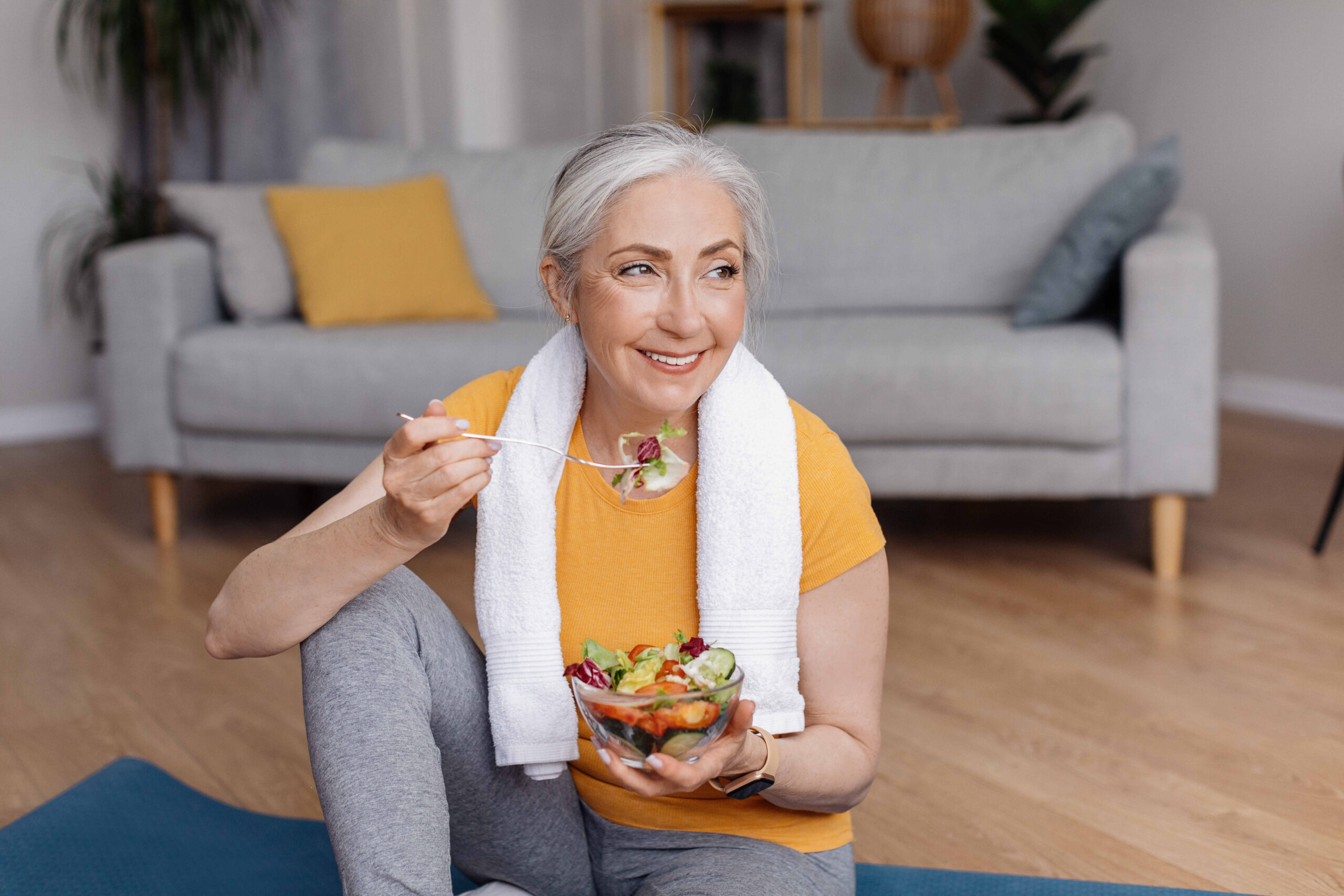Losing weight gets harder with age—but it’s not impossible. For many women over 50, what worked in their 20s or 30s doesn’t work anymore. Hormonal shifts, a slower metabolism, and changes in muscle mass mean the old “eat less, move more” advice just doesn’t cut it.
The right weight loss program can make a big difference—but finding one that actually works (and lasts) is a whole other challenge. Some are too restrictive. Others are built around 25-year-old gym junkies with time to spare. Women over 50 need something different: a program that supports real life, focuses on health—not just a number—and helps the body work with them, not against them.
If you’re navigating menopause, joint pain, or just a stubborn scale, this guide will walk you through the best options—and how to spot the ones that just aren’t worth your time.
Why Weight Loss Is Different After 50
As estrogen levels decline during perimenopause and menopause, the body’s fat distribution changes. You might notice more weight around the midsection—even if your habits haven’t changed. Muscle mass naturally decreases with age, and that shift lowers your resting metabolism, meaning your body burns fewer calories at rest than it did decades ago.
On top of that, sleep disturbances, stress, and medications can all contribute to weight gain or make it harder to shed pounds. It’s not just about willpower or diet—it’s biology.
That’s why the best weight loss programs for women over 50 go beyond calorie counting. They address the full picture, including hormones, activity level, muscle preservation, and long-term habits.
What to Look for in a Weight Loss Program
When evaluating programs, you want to find one that focuses on sustainable, gradual weight loss, supports muscle maintenance, and is sensitive to the needs of midlife women. Programs that promise rapid results through extreme restrictions usually backfire—especially at this stage of life when consistency matters more than speed.
You also want to look for programs that prioritize balanced nutrition, strength-building movement, and emotional support. Accountability and education go a long way toward helping you stick with a plan.
Here are a few top-rated options designed with women over 50 in mind—or that can be easily adapted for your needs:
WW (formerly Weight Watchers) remains a solid choice for many women. The points-based system is flexible, allows real food, and emphasizes lifestyle changes over fads. Their app includes menopause-specific support, recipes, and community features that appeal to older users. You can follow the plan entirely online or join in-person meetings if you prefer a social aspect.
Noom blends calorie tracking with behavioral psychology. The app offers daily lessons and focuses heavily on mindset, habit formation, and breaking the cycle of yo-yo dieting. While it skews a bit younger, many women over 50 appreciate the emphasis on education over restriction. Just keep in mind that Noom involves daily phone use and reading—great for those who love structure, but not ideal if you’re looking for a more hands-off approach.
SilverSneakers isn’t a diet plan, but it’s an excellent fitness program tailored for older adults—and included for free with many Medicare Advantage plans. It offers strength, balance, and cardio classes either in-person or online. Pairing it with a basic nutrition plan can help you build muscle and improve joint health while losing weight.
Mayo Clinic Diet focuses on long-term behavior change rather than drastic food restrictions. Created by health professionals, the program includes tools for goal setting, portion control, and healthy meal planning. It’s a smart, evidence-based option with fewer gimmicks and more long-term success.
Fit Mother Project is built specifically for women over 40 and focuses on metabolism, strength, and hormone balance. Their approach combines time-efficient workouts, sustainable nutrition, and coaching. If you want something tailored to midlife health, this may be a better fit than generic apps.
What to Avoid
While there are more options than ever for online and app-based weight loss programs, not all are worth your money—or your mental energy. Watch out for plans that rely heavily on meal replacements, detoxes, or super low-calorie regimens. These might lead to short-term weight loss, but they often result in rebound weight gain and frustration.
Be cautious of programs that lack transparency. If a site doesn’t list ingredients, costs, or expected results, that’s a red flag. Avoid anything that promises double-digit weight loss in a week or encourages skipping entire food groups. Weight loss after 50 is possible—but it’s rarely fast or dramatic.
Also beware of supplements that claim to “fix” menopause weight gain or reboot your metabolism. Most are unregulated, unproven, and expensive. Talk to your doctor before starting any supplement, especially if you’re managing conditions like high blood pressure, thyroid issues, or bone density loss.
Supporting Your Goals with Small Daily Changes
Whether you follow a structured program or not, consistency is key. Incorporating small habits into your daily routine can support your weight loss—no subscription required.
Start by increasing your protein intake to help preserve muscle mass and reduce hunger. Include strength training at least twice a week. Even light resistance workouts help counteract age-related muscle loss and support metabolism.
Make sleep a priority. Poor sleep disrupts hunger hormones and makes weight loss harder. Try to get 7–8 hours of rest, and speak with your doctor if insomnia or night sweats are affecting your sleep quality.
Hydration, stress management, and mindful eating all play a role too. Many women over 50 find that journaling their meals, walking after meals, and reducing processed foods make a noticeable difference.
Final Thoughts: Focus on Health, Not Just the Scale
The most important thing to remember is that weight loss after 50 isn’t about “getting your old body back”—it’s about building a healthier one for the years ahead. That means choosing programs that honor your lifestyle, support your health, and help you feel confident—not restricted.
You deserve a plan that works with your body, not against it. And you don’t need to chase perfection to make progress. With the right tools and support, you can feel strong, energized, and at home in your body—at any age.
Sources
WeightWatchers (WW)
Noom
SilverSneakers
Mayo Clinic Diet
Fit Mother Project




